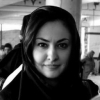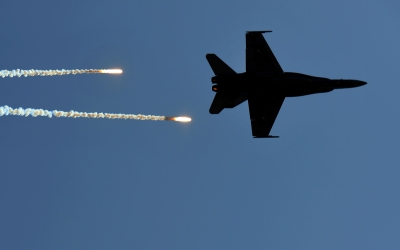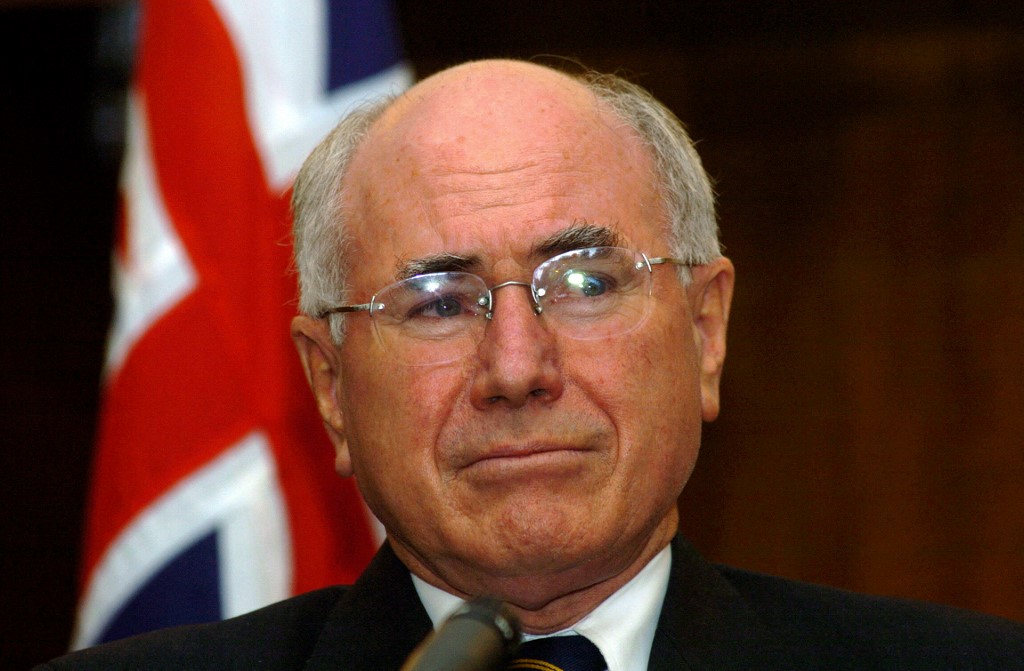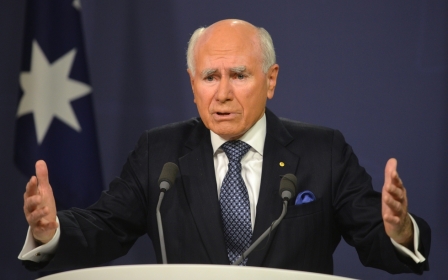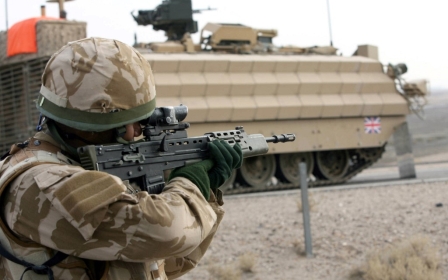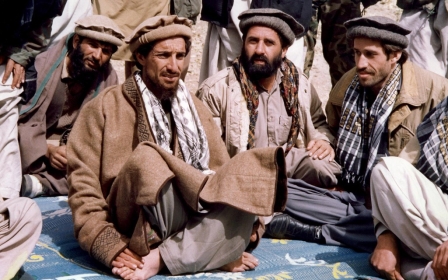Afghanistan: How Australia covered up alleged war crimes of SAS 'heroes'
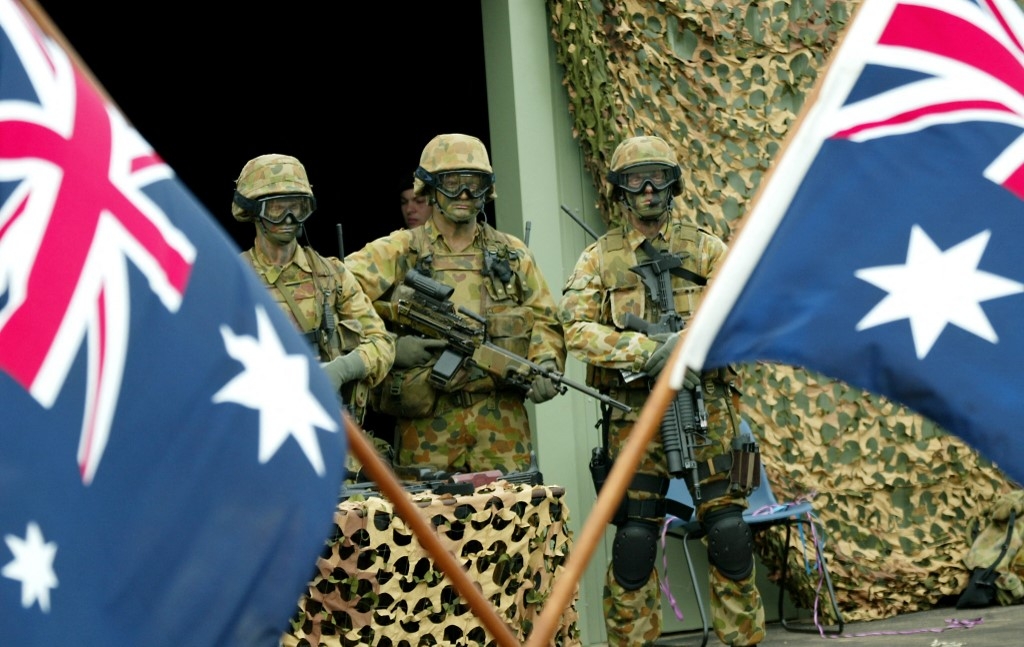
Justice delayed is justice denied, so goes the saying.
In the case of alleged Australian war crimes committed in Afghanistan, it’s not as simple as red tape or the oft-tepid pace of bureaucracy. Rather it is the result of a campaign of politically expedient hero-worship, of command-shirking responsibility and investigators rubber-stamping a litany of cover-ups.
In March, 41-year-old former Special Air Service (SAS) trooper, Oliver Schulz, was formally charged with the war crime of murder, a historic first in Australia. No serving or retired military veteran has faced a war crime charge - and in a civilian court no less.
It stems from the 2012 shooting of a young farmer, Dad Mohammad, in Uruzgan Province.
If convicted, Schulz faces life in prison.
New MEE newsletter: Jerusalem Dispatch
Sign up to get the latest insights and analysis on Israel-Palestine, alongside Turkey Unpacked and other MEE newsletters
That it has taken a decade for this case to reach even this point is appalling because, despite what one might assume, Mohammad wasn’t secretly killed, squirrelled away in some dark, dingy basement - he was shot in broad daylight, in front of multiple witnesses.
And several of those Afghan witnesses, as well as Mohammad’s family, promptly complained to the Australian Defence Force (ADF) and the Afghan Independent Human Rights Commission (AIHRC).
Collective responsibility?
The ADF investigation service looked into the killing, but signed off on the SAS’s version of events - that Mohammad was a Talib carrying a radio and was shot in self-defence as he was “tactically manoeuvring”.
A lot has been said about troops going rogue and about individual responsibility - fair points. But what of collective responsibility?
To say the official narrative is a deviation from the truth would be a breathtaking understatement. But most disturbing is that it was initially rubber-stamped by investigators.
A different version of events only came out years later, when helmet-camera footage of the incident was leaked to the Australian Broadcasting Corporation (ABC). Mohammad was lying in a wheat field, "quiet and not resisting", when he was shot at point-blank range.
He was not carrying the incriminating Taliban radio - he was clutching red prayer beads.
The issue here is that when witnesses and surviving family members complained - in this case, and the dozens of others now being reinvestigated - they were treated as grifters, and the dead were labelled "terrorists".
It’s not just an opinion - the truth about what can only be described as systemic, racist preconceptions is right there in the ADF’s own inquiry, known as the Brereton Report, which found that investigators “generally discounted local complaints as insurgent propaganda or motivated by compensation”, including complaints levelled by the International Committee of the Red Cross and the AIHRC.
Reading between the lines, in most cases investigators didn’t even bother speaking to the actual witnesses before dismissing their allegations.
This level of inquiry wouldn’t even pass the test in a one-horse town police station, let alone in an elite branch of a professional defence force.
Media mythology
Rubber stamping suited more than just the military.
Australia’s mainstream media, including but not limited to Rupert Murdoch’s News Corp, has whitewashed its own role in mythologising Australia’s role in the Afghanistan war, as it did with the invasion of Iraq on the recent 20th anniversary.
Official narratives - the brave good guys versus the slithery bad guys - formed the basis of a national campaign to glorify the SAS as the ultimate band of Australian warriors.
Journalists on embeds never failed to invoke the much-loved ANZAC-era "diggers" tag, but like ADF investigators, failed to invoke even a modicum of scepticism about what was happening just over the wire.
The media campaign to glorify the military, intended or otherwise, was so successful that journalists shocked even themselves, as evidenced in all the handwringing and surprise that followed the Brereton Report and Schulz’s murder charge.
Indeed, most Australian media reporting on war crimes has taken a defensive tone, quick to conclude alleged crimes involved just a few isolated bad apples and all but ignored questions of command responsibility, while quickly refocusing coverage on the report’s effects on the soldiers themselves, rather than Afghans.
State-sanctioned
This may explain, in part, why a number of SAS operators formed the belief they were untouchable. After all, who would dare bring down a national hero?
Well, certainly not successive governments that propped up the SAS as representing some imagined national ethos of "mateship", as former conservative prime minister, John Howard, never tired of invoking. In this imagining, the SAS is the embodiment of the good, morally sound and brave - not to mention muscular and chisel-jawed - common man, in the trenches, saving "civilised" society from the "uncivilised".
Indeed, invoking the SAS helped multiple governments brand Australia’s continued involvement in another disastrous American escapade, even as it increasingly resembled the quagmire of the Vietnam War.
In this imagining, the SAS is the embodiment of the good, morally sound and brave common man, saving 'civilised' society from the 'uncivilised'
They were always ready for a photo op and to send overburdened and increasingly bewildered troops into a war with no clear objectives, no matter how damaging that was to Afghans, or to the troops themselves.
Until recently, both government and military command ignored the staggering number of veterans who have killed themselves since their participation in the Afghanistan war.
Forty-one Australian troops were killed during the conflict, with another 260 wounded. But an estimated 500 veterans have taken their own lives since the 2001 invasion. The crisis is now subject to a Royal Commission.
The Australian experience in Uruzgan is a microcosm of everything that was wrong - and that went wrong - with the Afghanistan war.
Blowback
The scale of the war crimes allegations has seemingly increased since the Brereton report recommended the federal police investigate 19 soldiers over the "murder" of 39 civilians and prisoners and the cruel treatment of two others.
The Office of the Special Investigator (OSI) has told parliament it is now probing between 40 and 50 alleged SAS offences.
This is only happening because whistleblowers and a few journalists didn’t buy the chest-puffing propaganda, and have been subject to threats, police raids and prosecution as a consequence.
The irony is that, although Schulz has been charged, only one Australian is actually facing trial over Afghan war crimes - David McBride, who served two tours of Afghanistan as a legal officer.
Almost a decade before Schulz faced court, McBride brought allegations of systemic failures, including possible war crimes, to superiors and, later, to the Federal Police. Both ignored him.
He then leaked documents to the ABC, which blew the lid off the military’s campaign of secrets and lies.
McBride faces 50 years in prison for telling the truth.
The lack of popular outrage is further proof that very few sectors of society have learned from the collective failures of Afghanistan.
The media has moved on to Ukraine, trumpeting the childlike concept of good wars and good guys, and Australia’s role in fighting them. The government is deathly silent on why it's continuing McBride’s prosecution. The military is dragging its heels reforming its own failed systems.
And most of the public is apparently happily ignoring all of it.
The views expressed in this article belong to the author and do not necessarily reflect the editorial policy of Middle East Eye.
Middle East Eye delivers independent and unrivalled coverage and analysis of the Middle East, North Africa and beyond. To learn more about republishing this content and the associated fees, please fill out this form. More about MEE can be found here.


